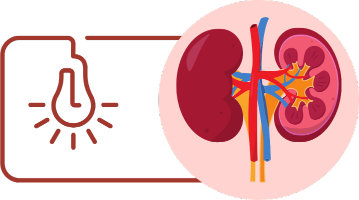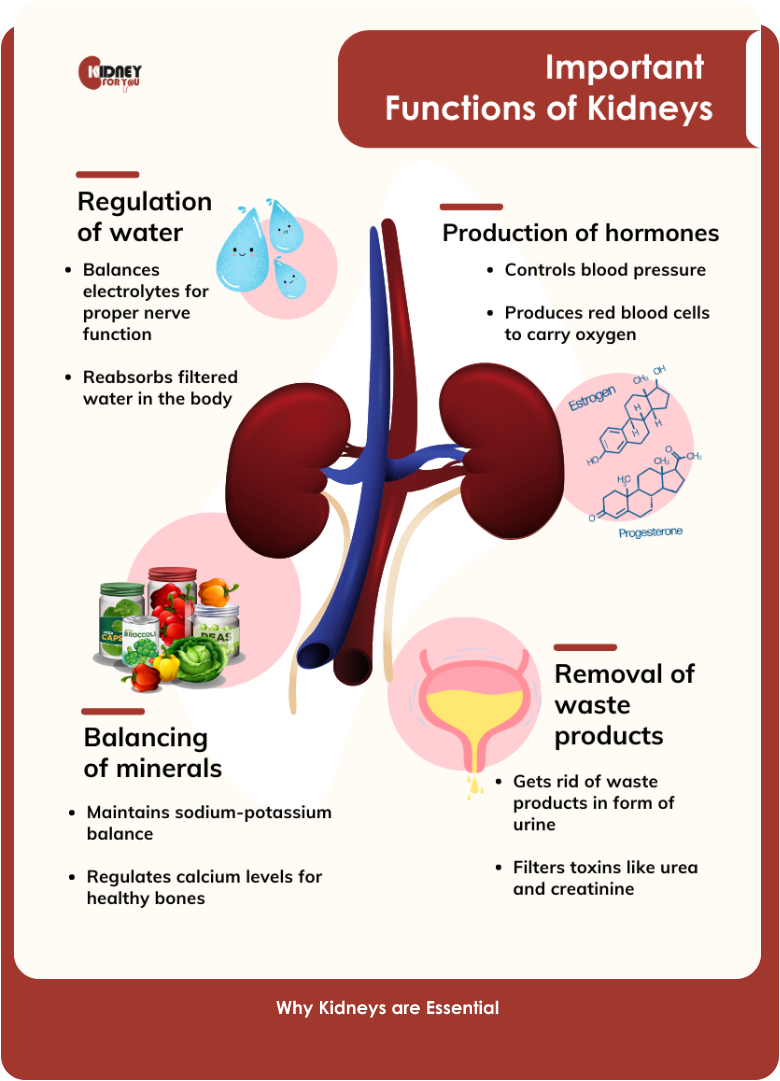Basics of Kidney Function
- Know Your Kidneys
- 6 Fascinating Facts about your Kidneys infographics
- How your Kidneys Work
- Why Kidneys are Essential
- Important Functions of Kidneys infographics
Know Your Kidneys
Your kidneys play a key role in the proper functioning of the body, it’s important to know about them to understand what can happen if they fail. They work like filters to remove waste products and toxins, excess water. Also, regulate blood pressure, red blood cell production and calcium balance in body.
Normally we have two Kidneys, one on each side of spine below the ribs. If you are born with one kidney or have donated or got injured, the other kidney can work efficiently to keep you healthy. Every minute, about “one litre” of blood is filtered by your kidneys. The filtered waste products are then stored in the bladder and removed in the form of urine.

How your kidneys work

Inside each kidney, there are millions of tiny filtering units known as nephrons.
Each nephron has a small filter (glomerulus) which is connected to a tube. These filters separate waste products from the blood and push them into the tube. The waste and extra water collected in the tube is called urine.
Urine stays in the bladder until the body is ready to get rid of it. This is a continuous process which our kidneys follow to keep us balanced.
The kidneys make about one to two litres of urine every day. This majorly depends on the amount of water we intake regularly.

Why Kidneys are Essential
- Regulation of water
Your body needs the right amount of water to function properly. One of the main functions of kidneys is to maintain water levels. They get rid of extra water from the body and also retain water when the body requires it.
- Balancing of minerals
The kidneys maintain an adequate level of minerals like sodium and potassium in your body. These minerals come from food and are important for good health. Kidneys remove extra sodium and potassium from your body through urine. They also help to balance other minerals like calcium and phosphate, which are necessary for strong bones and growth.
- Removal of waste products
The kidneys help to get rid of waste products and toxins from your body. Toxins like urea and creatinine are produced when the body breaks down protein from food such as meat.
When your kidneys don’t function properly the levels of urea and creatinine in your blood go up. To check how well your kidneys are performing, doctors use a simple blood test to measure the creatinine level in the blood.
- Production of hormones
Kidneys also produce hormones that are essential for our body. They act like messengers in the bloodstream and help to control blood pressure and produce red blood cells.